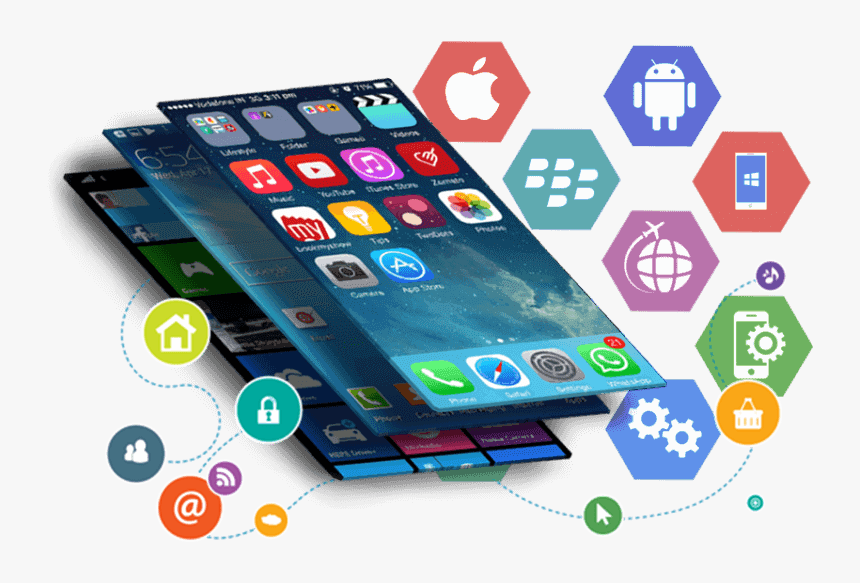It would be a mere understatement to say that mobile and smartphone technologies are changing the digital landscape altogether. The truth is, the telecommunications industry is now the puppet master that pulls the strings of every other sector, controlling not just communication but global commerce and the world economy at large.
We are in the midst of a smartphone revolution; thus, there is no questioning the need for and importance of Mobile App Testing in such a fast-paced, digitally transforming world.
By testing mobile apps, we find out whether these applications are usable and reliable enough for users in terms of functionality, performance and security. Rooting out major flaws in UX, providing full functionality and a steady, dependable performance is always necessary before any telecom application is rolled out onto the market.
In this article, we will learn about the various mobile apps used in the telecom industry and why they need testing and validation.
Mobile application testing- A necessity for the telecom industry
It takes less than 2 seconds to uninstall a mobile application if users feel it underperforms or isn’t easy to use. Easy accessibility via app stores and the convenience of downloading a plethora of competitor apps puts developers under immense pressure to constantly update apps in accordance with users liking. CRM (A customer relationship management application or CRM can help resolve customer issues and manage queries/ raised tickets. It enables the operators and customers to access the information they need and help with sales, orders and other workflows.)
Some of the commonly used mobile apps in the telecom industry include:
Retailer apps/Self-service portals:
It is a customary practice for telecom retailers to have an official app or portal through which they can engage with customers and address their needs. These apps also deliver messages, push notifications, offers, updates and can also be used to deal with day-to-day customer grievances.
Mobile wallets:
Operators also make it easy for customers to recharge their accounts using the retailer’s official app. These wallets make payments seamless and quick.
CRM and customer support app:
A customer relationship management application or CRM can help resolve customer issues and manage queries/ raised tickets. It enables the operators and customers to access the information they need and help with sales, orders and other workflows.
Sales support app:
It is like grievance redressal or customer service portal, but here the focus is on selling new plans, devices, or other products to the customers, alongside resolving customer issues about existing services.
Field service app (for technicians):
Technicians depend on sturdy apps to stay connected to the command center and test network conditions timely. These apps help enhance productivity, efficiency and help them access relevant information in time.
Signal monitoring app:
Signal monitoring apps, again, are for technical teams to monitor phone tower signals and note signal strength and quality. This is especially helpful when making decisions regarding repairs, new updates, service improvements, or acquisitions.
Vendor app:
These apps link 3rd parties (like distributors, dealers, etc.) and customers/the telecom companies, helping everyone to connect.
Data collection app:
These apps simplify the entire process of data collection, starting from data input to database transfer.
Testing Mobile Applications: 10 reasons why it is important
Mobile communication and telecom depend on sturdy applications and networks that enable seamless connectivity and engage users by helping them perform the desired tasks.
Here’s how mobile application testing can help these smartphone apps reach premium quality standards:
- With performance testing, developers can validate and root out issues such as low speed, responsiveness, instability and bad networks in smartphone applications. Testing can improve overall usability and performance, thus increasing the dependability of a mobile app.
- Cyber Security testing is the sole measure to strengthen the security aspects of the app and make it safe for customers to use. It is essential to safeguard customer data against cyber threats, like unauthorized access, malware, etc. Effective security testing can nip safety issues in the bud.
- As we see the growing proliferation of IoT (Internet of things) networks and devices, testing IoT mobile apps to be foolproof becomes mandatory.
- Conformance testing is necessary to validate whether the application under test complies with requirements, technical specifications, standards, regulations and contracts.
- Automation testing can be beneficial for mobile apps that are updated regularly. Continuous testing means a satisfactory output after each test.
- Testing mobile apps is necessary to gain an actual real-world customer perspective. In addition, effective testing through virtualization can help prepare the app for usage under different natural world conditions.
- Measures such as managed crowd testing can test and validate the mobile application for widespread usage in any geographical location, device, or network.
- Testing mobile apps well within time can lead to faster deployment and save costs in the long run.
- As mobile applications are now the face of the brand, they must be well tested to add to the brand image positively. Well-tested apps can be direct contributors to brand loyalty and remembrance.
- Testing mobile apps can also streamline customer service, billing and tech support.
Conclusion
Telecom providers are responsible for improving and maintaining steady communication services worldwide. As a result, customers highly depend on them for a good experience.
CX has always been a significant factor in determining a mobile application’s worthiness. To add to this, customers demanding faster speeds, newer technologies and self-service portals can add to the challenges that telcos are currently facing.
Quality engineering can help prepare the world’s telecom giants to face these renewed demands. In the cutthroat telecom landscape, fast, efficient and intuitive apps are not only necessary, but a given. Thus, pressing the need for timely and continuous software testing.
Choosing an experienced telecom testing service can help you get an edge. A good software testing partner can not only bring best-in-class knowledge of technologies, tools, integrations and upgrades but also helps telecom clients gain a better business value.







